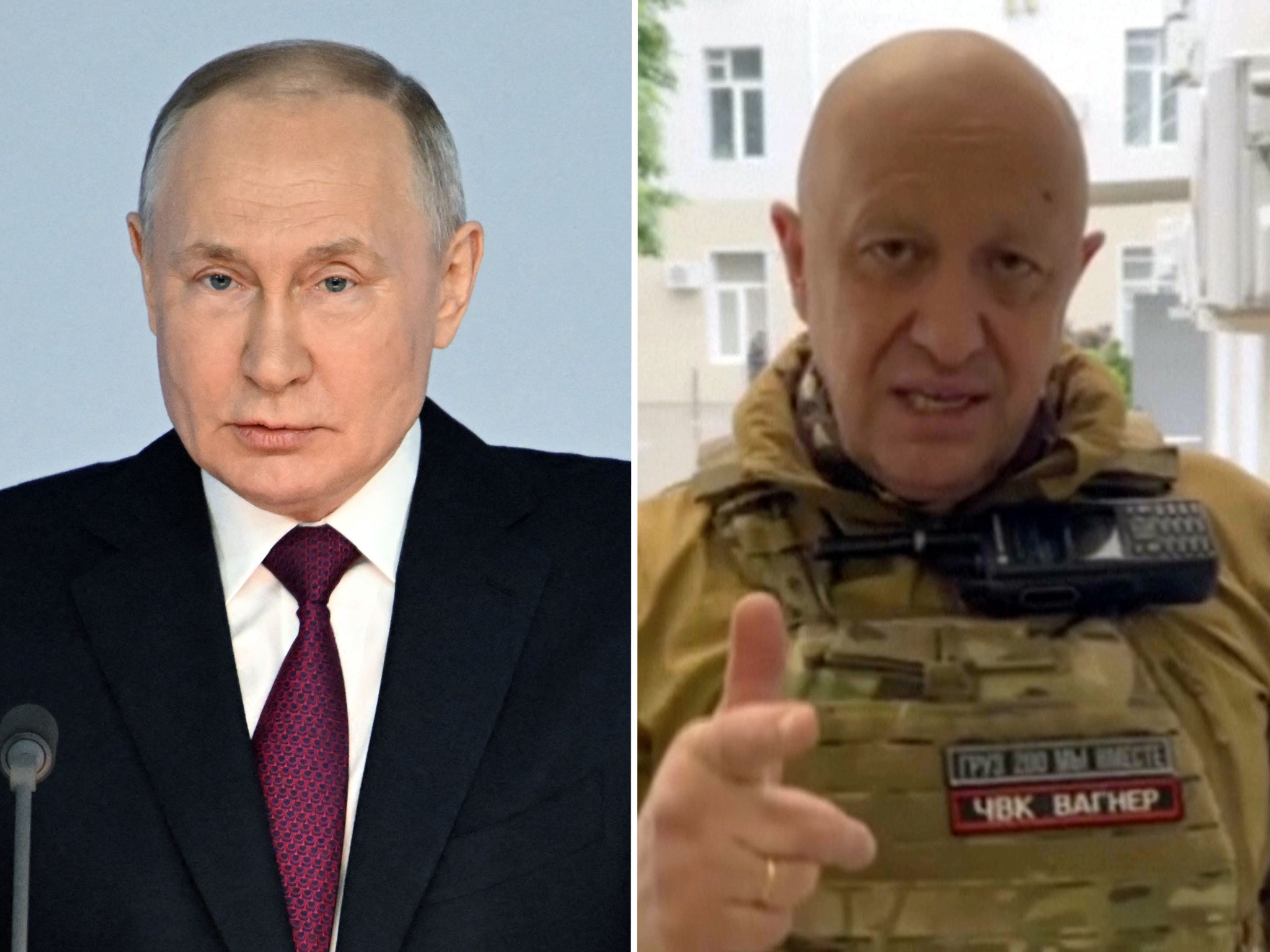Putin will cling on to power until people inside the Kremlin are up for the fight
Prigozhin’s march on Moscow will have frightened Putin – but the Russian leader survived because no other senior figures joined the call for change, writes historian Peter Frankopan

It was over almost as soon as it started. The events that unfolded on Saturday looked ominous. As Yevgeny Prigozhin and his Wagner Group took control of Rostov-on-Don and began to move on Moscow, the Russian authorities were certainly rattled.
Orders were given to dig up roads, to slow down the column of military vehicles apparently heading north; lorries were lined up to block motorways; Red Square was closed to visitors as steps were taken to boost security; government planes took off for the apparent safety of St Petersburg – though who was aboard was unclear.
President Putin took the extraordinary step of taking to the airwaves on Saturday to make an emergency televised address. To those outside Russia, it was clear that he was talking about what looked like an insurrection, perhaps even a coup. “We are facing a betrayal,” he said, solemnly and clearly rattled. “Any internal mutiny is a lethal threat to our state, to us as a nation,” he went on. “It is a blow against Russia, against our people. And our actions to defend the fatherland from such a threat will be brutal.”
As it turns out, this was no coup, no effort to topple Putin or replace his government. Rather, it was a bid by one man – Prigozhin – to buy himself a ticket to safety. He got one, for now. After the unlikely intervention of hardman Alexander Lukashenko, Prigozhin now has the dubious reward of “moving” to Belarus, home to one of the most repressive regimes on Earth.
If and how long he stays there, safe and sound, will depend on what leverage he retains on Putin. It is inconceivable that Prigozhin, a man schooled in the dark arts and with long experience of the brutal Soviet prison system, has not thought that through. What that leverage is has become a source of considerable speculation and conjecture in the last 48 hours.
“We were on a march to demonstrate our protest”, said Prigozhin on Monday evening in a rambling 11-minute audio message, “not to topple the government.” His was a noble cause, he said, to prevent the closure of Wagner this weekend and the associated incorporation of its mercenaries into the Russian army. And, for good measure, he wanted to demonstrate the shortcoming of the latter, arguing that Kyiv could have been taken in a day last year had Wagner (and presumably he) been in charge.
While entirely plausible that Putin has been wounded by the coup that never was, as many commentators have been arguing, another way of looking at this is that it has done the opposite.
While nerves were certainly jangling in the Kremlin on Saturday, no senior-level figures sided with the mutiny, spoke of the need for change, demanded reform of any kind and none fell out of line. That is significant. So too is that while the latest resident of Minsk is unlikely to be quiet for long, the Prigozhin problem has been solved, at least for the time being – something that gives Putin some breathing space.
For now, the key discussions are the ones taking place out of sight and definitely out of earshot. Putin has dragged Russia into a series of crises, of which this is just the latest.
With the economy tanking, private businesses being squeezed hard, a devastating brain drain as a result of people leaving Russia over the last year and a half, life expectancy for 15-year-old Russian men now estimated to be the same as those in Haiti, and the invasion of Ukraine stalling if not going backwards, the question is one familiar to Russians and to those who know Russia well.
“What is to be done?” asked Lenin at the start of the 20th century. A few more minds will be turning to that question after the tumultuous events of the weekend.
Join our commenting forum
Join thought-provoking conversations, follow other Independent readers and see their replies
Comments


Bookmark popover
Removed from bookmarks